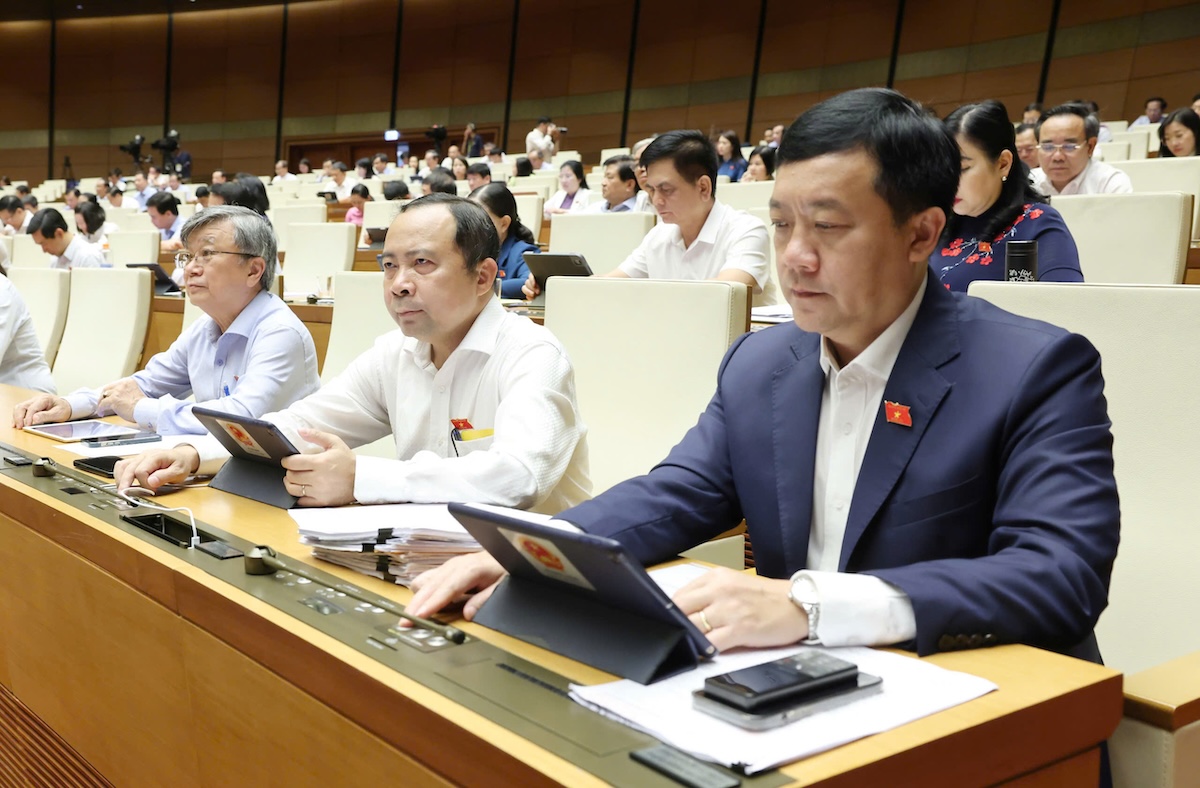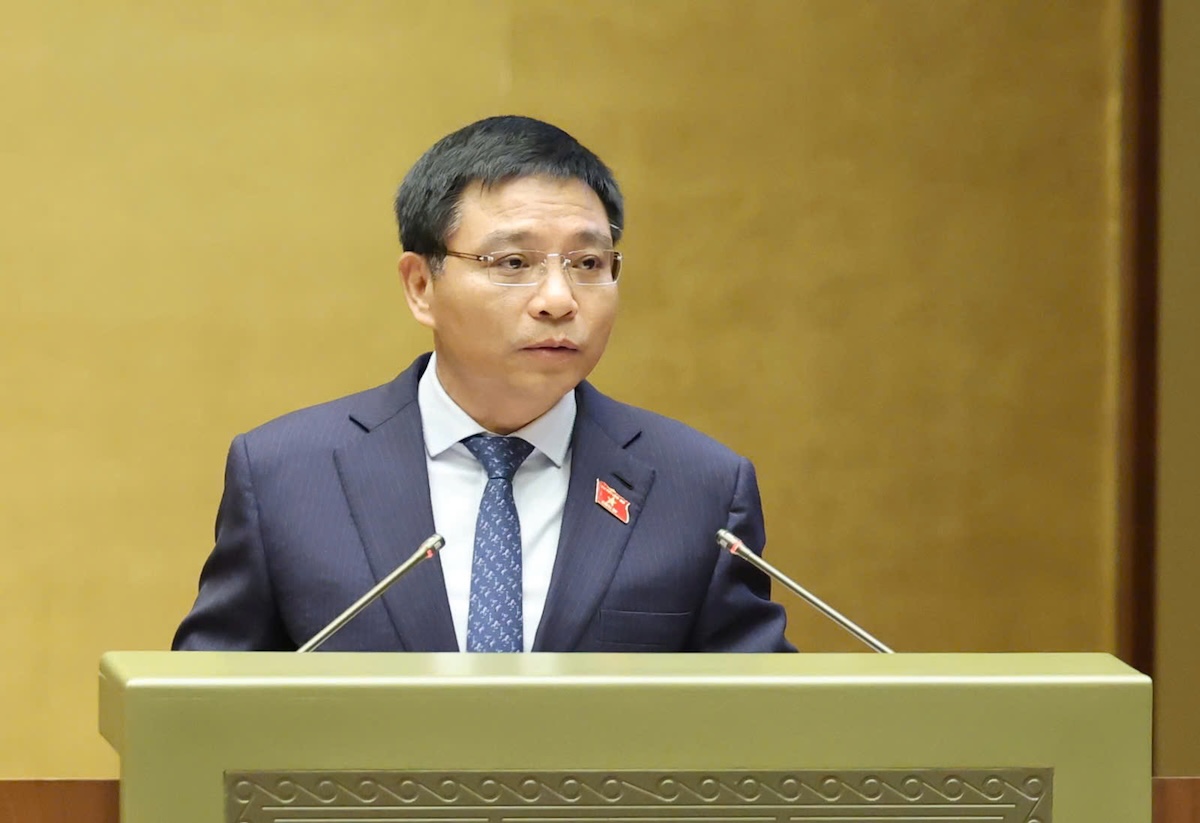On 25/6, the National Assembly passed a law amending and supplementing eight laws related to the financial sector, including the Law on Investment, with nearly 91% of delegates voting in favor.
A key change in this amendment is the decentralization of investment approval authority from the prime minister to local authorities for seven project categories. Specifically, provincial people's committees are now authorized to decide on investments for new airport construction, runways, passenger terminals, and cargo terminals with a capacity of 1 million tons per year or more.
Provinces are also authorized to approve projects related to air passenger transport; seaports and port areas belonging to special ports or with a scale of 2,300 billion VND or more; and oil and gas processing projects.
Housing projects (rental, lease-purchase, and sale), urban areas with a scale of 50 hectares or more, or less than 50 hectares but with a population of 15,000 people or more; and projects using land from 100 hectares or more, or less than 100 hectares but with a population of 10,000 people or more, are also under the investment approval authority of local governments.
 |
National Assembly delegates vote to pass the Law amending and supplementing eight finance-related laws on 25/6. Photo: Giang Huy
In his report before the National Assembly vote, Minister of Finance Nguyen Van Thang acknowledged the significance of the investment approval changes, noting that they affect various sectors and fields under the management of multiple agencies. He highlighted the differing opinions on this matter, with some advocating for maintaining the procedure to control investments, especially in defense and security. Others supported simplifying the investment process for increased ease and transparency.
The investment approval document serves as the basis for land procedures (land allocation, land lease, land-use purpose conversion, and sea area allocation); construction (issuance of construction permits); and environmental impact assessments. It also serves as the basis for recognizing investment incentives and protections.
Minister Thang emphasized the substantial decentralization of investment approval authority from the prime minister to provincial people's committees. The government will issue a decree providing guidance to simplify administrative procedures for investment approvals and investment registration certificates.
"The government is reviewing the implementation of the Law on Investment. The proposal to study the elimination of the investment approval procedure will be comprehensively researched and evaluated during this process", he said.
 |
Finance Minister Nguyen Van Thang presents a report explaining and receiving a law amending and supplementing eight finance-related laws on 25/6. Photo: Giang Huy
The revised Public-Private Partnership (PPP) Law introduces changes to the revenue sharing mechanism between the State and investors in BOT, BTO, and BOO projects. When actual revenue exceeds the projected revenue in the PPP contract's financial plan by 110-125%, the investor will share 50% of the difference with the State. The specific sharing ratio will be determined through negotiations between the relevant authority and the investor. This revenue sharing applies after adjustments to service prices, fees, and the PPP contract duration, and after auditing by the State Audit Office.
For PPP projects in science and technology, investors are exempt from revenue sharing for the first three years of operation.
Conversely, if actual revenue falls below 75-90% of the projected revenue, the State will share 50% of the difference with the investor. The specific sharing ratio for revenue decreases will be determined through negotiations.
The revised PPP Law proposes a one-time revenue sharing mechanism for BOT projects facing difficulties before 2021. This applies when a project generates no service fees and actual revenue for the past three years is below 75% of the projected revenue in the PPP contract due to policy or planning changes.
This revenue sharing mechanism doesn't apply if the financial plan has been adjusted based on return on equity, loan interest rates, or debt repayment plans that compromise feasibility.
The government will detail the methodology for determining sharing ratios and the procedures for implementing this mechanism. Ministers and provincial people's committee chairs will decide on applying revenue sharing and its ratio for projects they approve, aiming to prevent service price increases and extended collection periods.
According to Minister Nguyen Van Thang, the addition of a mechanism to address revenue decline risks for BOT projects facing difficulties before 2021 is necessary to resolve outstanding issues. Currently, 11 transport BOT projects are experiencing revenue decline, according to government statistics. These projects are underperforming, and the State bears responsibility for addressing the issues, as most are due to objective reasons or errors by State agencies, not investors.
The Ministry of Transport (now the Ministry of Construction) is negotiating with investors and lenders to reduce loan interest and profits. However, similar issues may arise with other transitional transport BOT projects.
Minister Thang also stated that the competent authority has agreed to add a mechanism for the State to share revenue reductions with these projects. The government will issue a decree detailing the State's sharing ratio with investors and the shared responsibilities of investors and lenders, ensuring the principle of "harmonized benefits, shared risks."
Anh Minh












